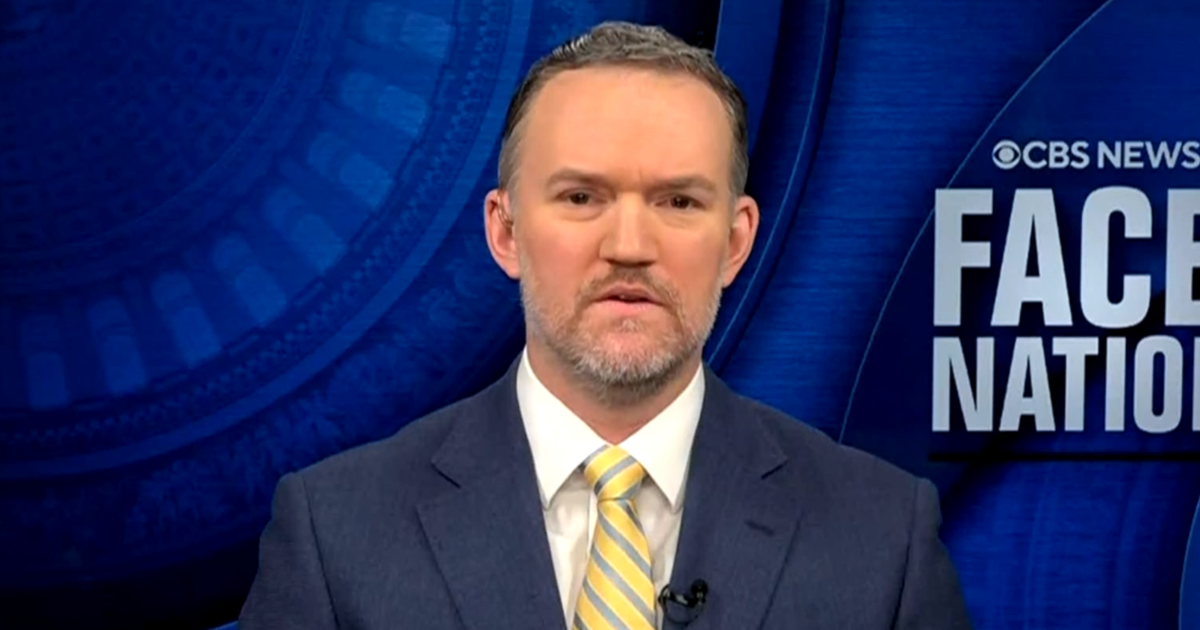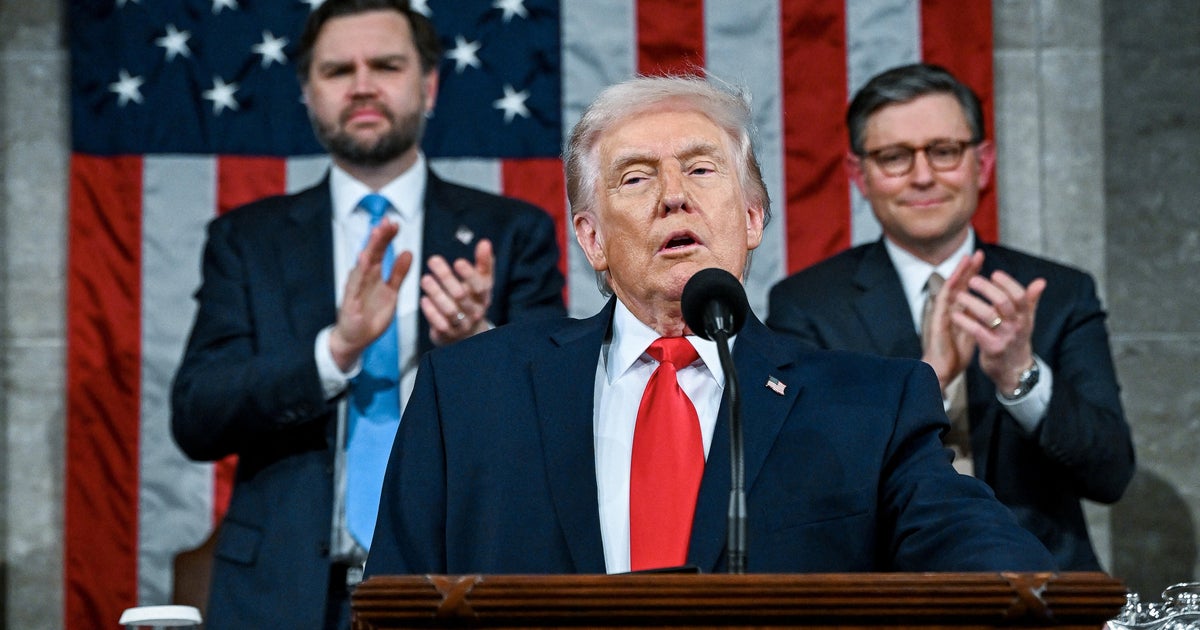Transcript: Scott Gottlieb discusses coronavirus on "Face the Nation," November 29, 2020
The following is a transcript of an interview with former FDA Commissioner Scott Gottlieb that aired November 29, 2020, on "Face the Nation."
MARGARET BRENNAN: We want to go now to former FDA commissioner Dr. Scott Gottlieb, who joins us from Westport, Connecticut. He sits on the board at Pfizer, one of the drug companies preparing a vaccine. Good morning to you.
DOCTOR SCOTT GOTTLIEB: Good morning.
MARGARET BRENNAN: You could- you could really hear the concern and Dr. Birx's description of what she thinks is about to hit this country. You look at South Dakota, it was the latest case to see one COVID death for every 1,000 residents. Is the whole country going to look like South Dakota?
DR. GOTTLIEB: Hopefully not. I think parts of the country are going to be able to do better than the Midwest is doing and certainly better than South Dakota and North Dakota are doing. If you see what's happening in the Northeast and mid-Atlantic states where governors took more aggressive steps earlier, where there's more consistent use of masks, where they took less infection going into this season, I think you're going to see infection remain- rates remain lower than we're seeing in other parts of the country like the Midwest. Also, there's a lot of testing available here. So they're taking more aggressive steps to try to contain the infection. If you look at states like South Dakota and the Midwest generally, you're starting to see the number of new infections slow. And that's a reflection of the fact that they've fully infected at least 30% of the population in states like South Dakota, and maybe as high as 50% if you look at some of the modeling. So at some point, you have such a high rate of infection in these parts of the country that you're going to see a natural slowing of new infections because the people who are eligible to be infected, who are vulnerable, have already gotten the virus.
MARGARET BRENNAN: I mean, is that the strategy, the federal strategy to just hope for the best?
DR. GOTTLIEB: Well, look, quite frankly, that's been the strategy of some people, this so-called herd immunity strategy. They don't say that explicitly, but some people think that you really can't stop this virus and we just have to let it run its course and do our best to protect those who are vulnerable. We're not doing a very good job of protecting the vulnerable. Almost 8% of all nursing home residents have perished as a result of this pandemic since the start of the year. But there are some people who don't think you can really fully stop this virus. I disagree with that. I think you look at parts of the country, look at New York, look at my home state of Connecticut. There's a lot of infection here. These states are pressed right now, but you're not seeing the widespread rates of transfer that you're seeing in other parts of the country that haven't taken more aggressive steps. And I would argue that the economy in South Dakota and parts of the country that let this run a little bit more and didn't really take aggressive steps, didn't put in place mask mandates, didn't close congregate settings like bars and restaurants. I don't think there's real evidence that they've done better economically than parts of the country that took more prudent steps. What's really keeping consumers home is the virus. Why- why people aren't going out to eat is they don't want to go into restaurants and risk getting infected. It's not the mandates and the state action that's keeping people home. It's the infection.
MARGARET BRENNAN: The CDC is considering shortening the amount of recommended time for a quarantine. What does that accomplish?
DR. GOTTLIEB: Look, I think this is a prudent step. I think we should have contemplated this earlier because the reality is most people who get exposed to COVID are going to come down with COVID- who get exposed to coronavirus will come down with COVID within a short period of time, figure five to seven days. There are some outliers, and some people- there is evidence that some people won't contract the infection until a full 14 days after exposure. But, what you want are recommendations that are prudent and practical that people are going to follow. And when you have a 14 day quarantine period, that's such a long period of time that a lot of people aren't going to follow that anyway. And it makes it difficult to adhere to recommendations. And so putting in place a 10-day quarantine period, even a seven-day quarantine period, you're going to capture the vast majority of infections within that time frame. So I think you need to balance the practicality of what you're recommending with people's ability and willingness to comply with it.
MARGARET BRENNAN: You need a degree in psychology to figure out how to get people to comply these days. Dr. Fauci said on another network this morning, "There's not enough vaccine right now to vaccinate health care workers next month. That's the reason why this happens, that it goes to the states, that the amount of vaccine gets shipped locally. And then the final decision of how to do that properly will be left up to the states." What does he mean? What- what should be the deciding factor in who gets the vaccine? And are we short on supply already?
DR. GOTTLIEB: We are short on supply. We're- we're not going to have enough supply to vaccinate everyone who could be eligible for this vaccine, who could benefit it- from cert- from it certainly. The federal government this week on December 1st is going to make recommendations of vaccine advisory committee that advises CDC will make recommendations on who should get the vaccine first, the so-called 1A group, the people who should get it immediately when it becomes available, hopefully in- in December, if there's one or more authorization of vaccines this month, including from the company I'm on the board of, Pfizer. That's going to be health care workers and residents of long term care facilities. There's about 20 million health care workers who might be eligible and about three million residents of long term care facilities and staff of those facilities. Those will be the first group of patients who get access to it. That's pretty much decided. They're going to vote on it this week. But I wouldn't be- I'd be very surprised if they deviate from that. But there's only going to be 40 million doses available throughout the whole month of December if both companies get authorized on time. So, there's probably not enough vaccine to work fully through both of those groups. And then there's a question of who's going to be in that second tranche, what we're calling 1B. And there is some debate whether that's going to be older Americans, those over the age of 65 or 75 or certain essential workers or some combination of both. There's about 85 million essential workers who might be eligible to be vaccinated if you- if you bifurcate it to that group. And there's about 50 million people over the age of 65, 20 million over the age of 75.
MARGARET BRENNAN: Yeah.
DR. GOTTLIEB: And so that's going to be some debate about which group gets prioritized first.
MARGARET BRENNAN: When Dr. Birx says "vaccinate for impact," what does that mean?
DR. GOTTLIEB: Well, it depends on what impact you're trying to achieve. If you're- if your goal is to maximize the preservation of human life with a vaccine than you would- you would bias the vaccine towards older Americans. You would try to get everyone over the age of 75 vaccinated first. There's about 20 million of- of those in that group.
MARGARET BRENNAN: OK.
DR. GOTTLIEB: If your goal is to reduce the rate of infection, you would prioritize essential workers. So it depends on what impact you're trying to achieve.
MARGARET BRENNAN: And a lot of that is going to rest on the shoulders of state governors. We'll be covering this. Dr. Gottlieb, thank you for your insight. We'll be right back.



